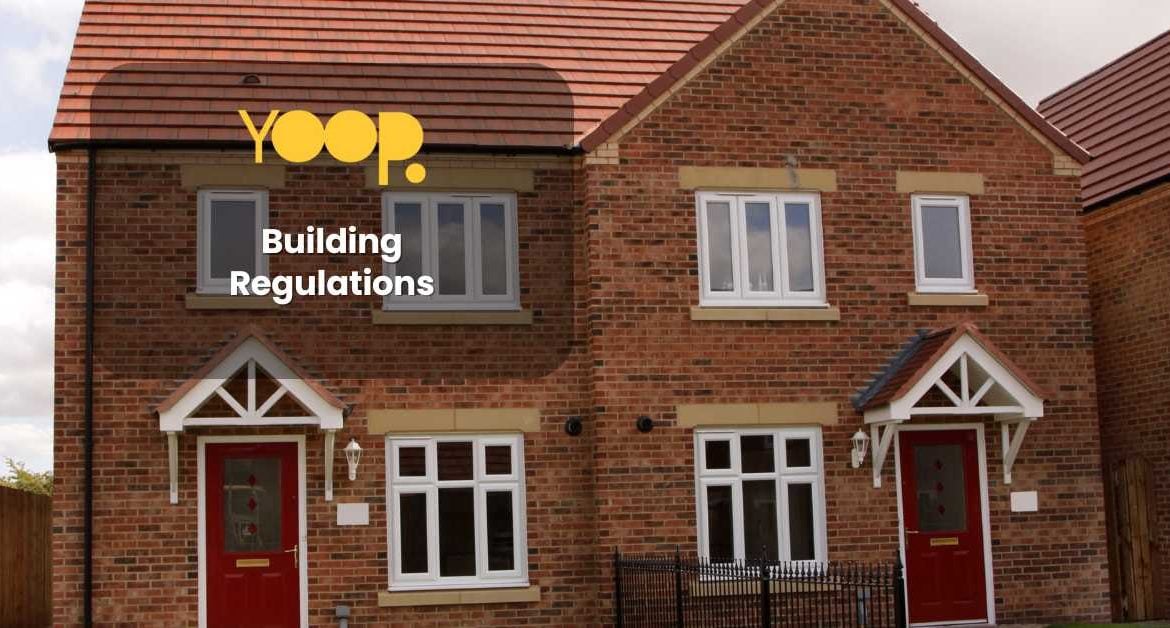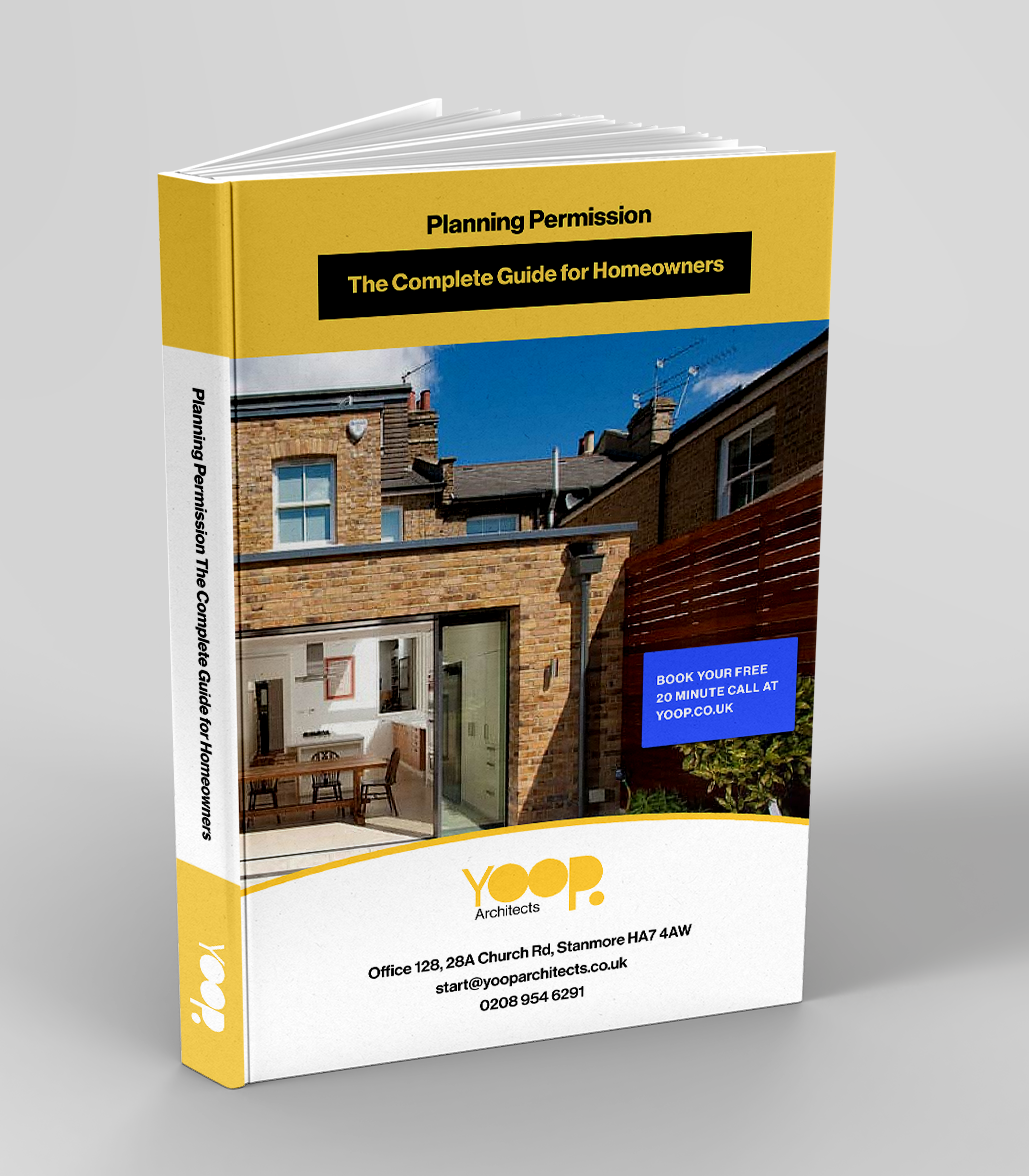
Building Regulations
What are building regulations?
The Building Regulations are minimum standards for design, construction and alterations to virtually every building to ensure the safety and health for people in or about those buildings.
Building regulations approval is different to planning permission. You might need both.
Building regulations approval is different to planning permission. You might need both.
- Yoop Architects TWEET THIS
In the United Kingdom, building and extension projects must abide by building codes and zoning laws. Thanks to them, buildings preserved for society’s use will be safe, economical, and usable by all individuals regardless of their physical abilities. Rest assured; these codes deal with construction in totality answering any question from how load bearing walls would be constructed to the fire protection methods, insulation, and moist ventilation all the way to building for the physically incapacitated.
This is a summary of the main subjects that the building regulations include:
1. Structural Safety
These regulations cover both the design and construction of new buildings and extensions as well as alterations and additions. This entails ensuring that the various components of structures, such as foundations, walls, roofs and floors, can safely carry loads and conditions for which they are designed and will not collapse.
2. Fire Safety
These cover fire resistance and compartmentation, means of escape including fire doors, smoke detectors, and prevention of fire spread by various materials. For instance, adequate exits and fire alarms should be provided in every building, which is to be newly constructed or existing one altered.
3. Energy Efficiency
Building regulation set energy efficiency standard for new building works and extension of existing buildings. This includes information on heat loss prevention by walls and roof, glazing of windows, heating systems that conserve energy, and the installation of photovoltaic systems or other renewable sources.
4. Ventilation
These are policies in place that promote active and passive air circulation in order to achieve ideal air quality devoid of excessive moisture to permit normal human habitation. This includes appliances such as extractor fans or hoods in kitchens or bathrooms, as well as appliances such as windows or air bricks that facilitate natural ventilation.
5. Drainage and Plumbing for Regulations
Certain standards have been set in the building regulations concerning drainage, waste disposal, and plumbing so as to facilitate the proper and safe disposal of wastewater without flooding or pollution pests.
6. Accessibility
Laws give provisions with respect to facilities that provide access to people with disabilities e.g ramps, lifts, wide doors and accessible toilets etc in order to make sure everybody gets to use the buildings.
7. Safety Measures with regards to Electrical Wiring
All work involving electrical installation in the building works should be done according to the safety standards Even if new wires, light fittings or electrical appliances are put into place, a qualified electrician must perform this task.
8. Sound Absorption
Building codes generally have sound proofing requirements for apartment units and other attached houses in order to minimize noise transmission from one unit to the other.
9. The Efficient Use of Water
Also, rules have been established regarding the amount of water that can be used in residential and non-residential buildings by promoting the installation of water-efficient products such as taps, toilets, and showers.
10. Quality of Materials and Workforce
The regulations provide for the quality of materials used in construction and the skill level of the people doing the work.
What qualifies as ‘building work’ and falls under control of the regulations?
All extension work requires building regulations approval and you may need building regulations approval for many alteration projects, including:
- Roof
- Structural alterations
- Significantly different roof covering
- Replacing more than 25% of the roof covering
- Replacing windows and doors
- External walls
- Work that affects more than 25% of an external wall
- Insulating a cavity wall
- Internal walls
- Building, removing or forming an opening in an internal wall
- Replacing fuse boxes and connected electrics
- Installing a kitchen/bathroom
- Plumbing/drainage
- Changing electrics near a bath or shower
- Installing a fixed air-conditioning system
- Heating and boilers
- Installing or replacing a heating system
- Adding extra radiators to a heating system
However, you do not need to get approval yourself if you use someone registered according to building regulations with a competent person scheme.
Inside this easy to read free guide, we will teach you the key things you need to know about planning permission.
What types of building regulation projects are exempt?
- Most repairs, replacements and maintenance work (except heating systems, oil tanks, fuse boxes and glazing units)
- New power and lighting points, or changes to existing circuits (except around baths and showers)
- Like-for-like replacements of baths, toilets, basins and sinks
- Some conservatories
- Non-habitable buildings with a total useful floor area of less than 50m² such as greenhouses and sheds
Click here for more information about building regulation exemptions
What happens if I don’t comply with building regulations?
- The person doing the work could be prosecuted and fined
- Your local authority could make you remove the faulty work/pay for it to be fixed
- Without approval you will not have the certificates of compliance you may need when you want to sell your home
How do I apply for building regulations approval?
If you are carrying out the building works yourself, or you’re working with someone who’s not registered with a competent person scheme, then you can apply for building regulation approval via the Planning Portal.
How to Comply with Building Regulations
For the majority of the development works, it is necessary to file an application of Building Regulations with the respective authority before the commencement of the works. Subsequently, a Building Control Officer will carry out an inspection of the works at intervals to check for compliance. In case, the works executed in your project do not conform to the regulation, it would be necessary to alter the works undertaken to resolve the issue.
Not complying with the building regulations will result in penalties and legal consequences, and in some cases, an individual may be forced to change or demolish the structure that has already been built. Hence, it is very important to engage the services of qualified personnel such as architects, builders, and engineers who understand these.
At Yoop Architects, we organize the whole planning as well as the approval process and guarantee that the project adheres to all the building regulations. This means that you can enjoy the comfort of knowing your project is within the law, safe, and constructed to the highest standards.
FREE EXPERT HELP TODAY
Thinking of your dream home improvement or how to start your project?
Need your planning questions answered? Talk to an expert today.
Book a FREE 20 Minute Call with one of our home improvement Architects.


